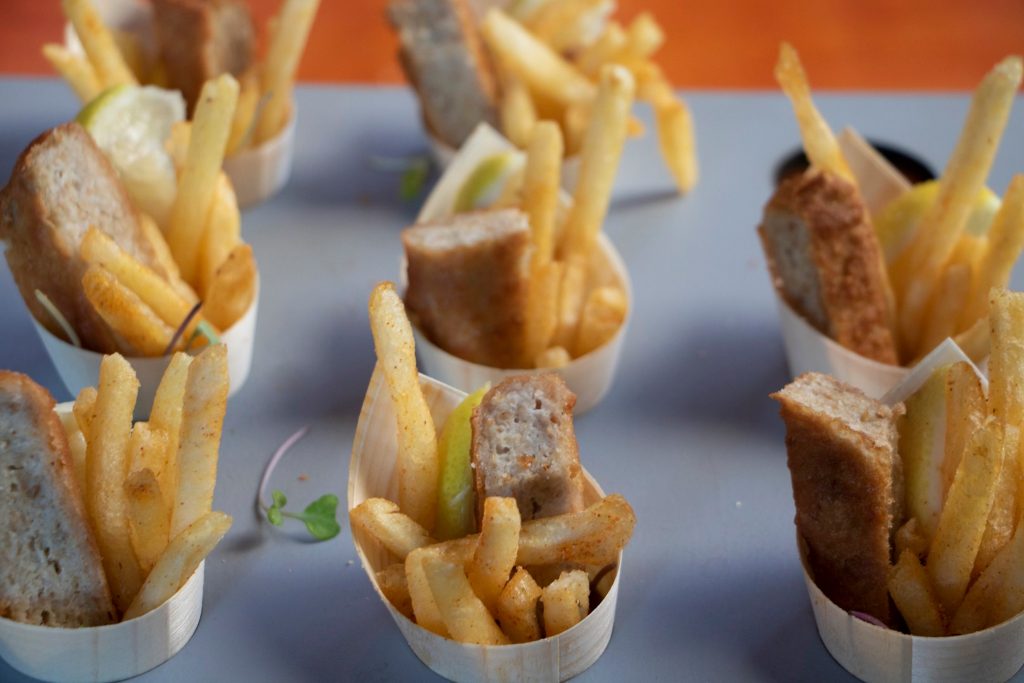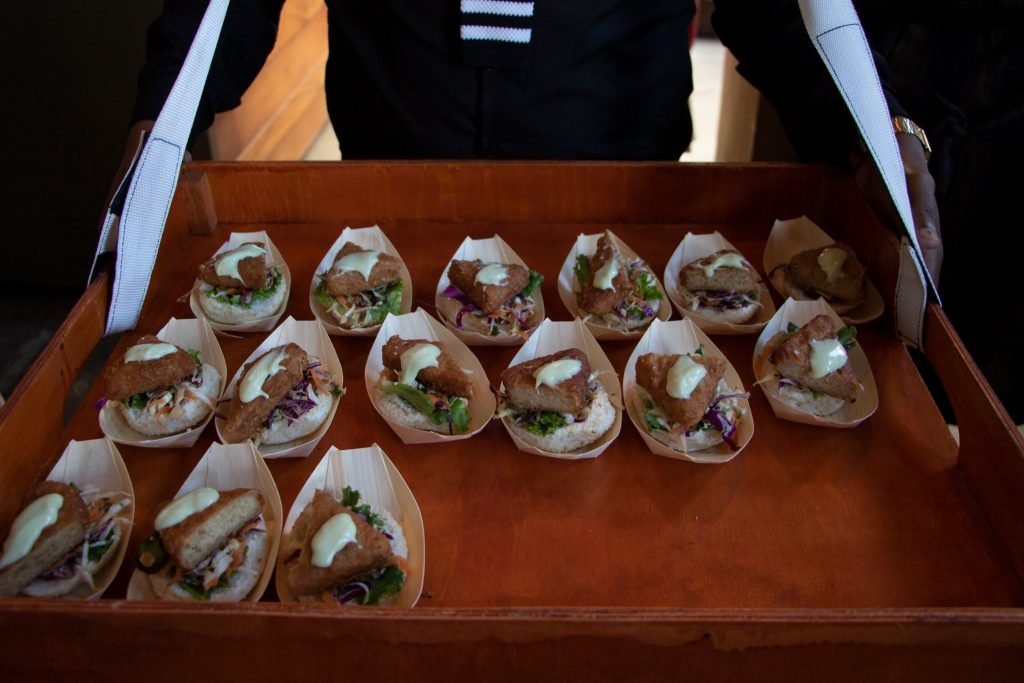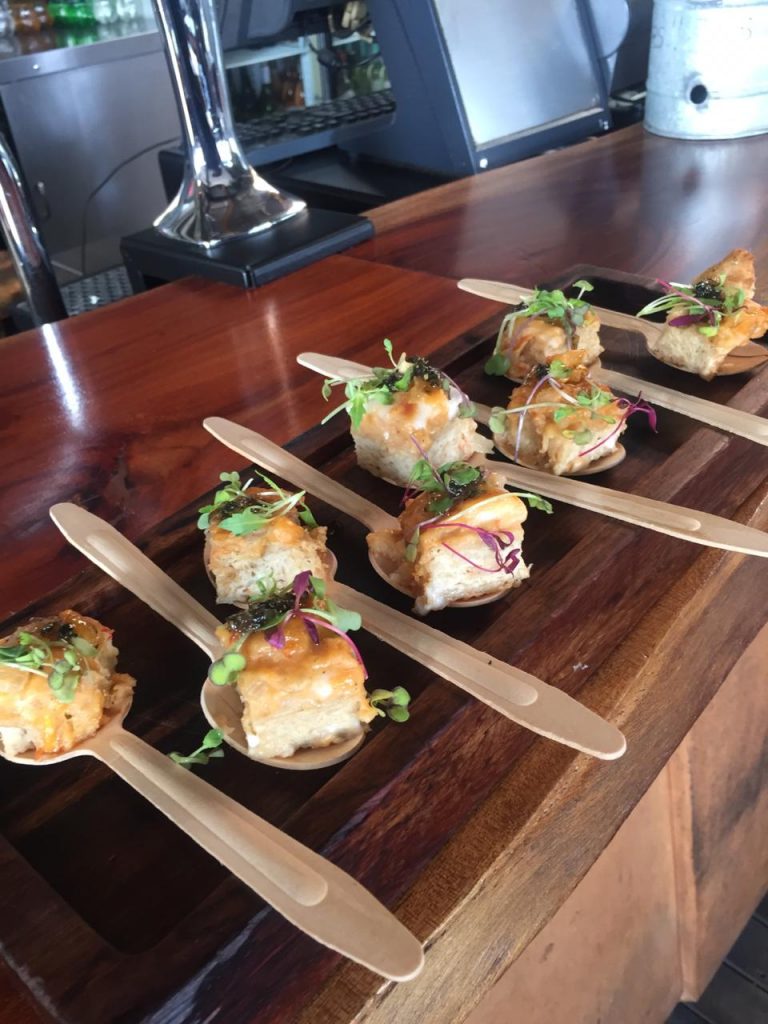As a family business, all of our products that we make are created with our children and grandchildren in mind. Our current food system is totally unsustainable and if we keep on going at our current rate, there will be nothing left for our future generations to survive on. Indeed, as the Native American proverb goes: “We do not inherit the ocean from our ancestors; we borrow it from our children.”
We are driven by our own family’s need for food that has a light impact on the planet and by our own children’s livelihood in the years to come. This is why we started creating meat-free products. It became apparent however that it’s not only the forests and the land that are impacted by our food choices, but the oceans as well.
The ocean covers 71% of the earth’s surface, serving as a major component of our ecosystem. It is responsible for every two breaths we take. The ocean produces more oxygen than the entire world’s rain forests. It absorbs almost half of the carbon dioxide. 86% of drinking water comes from the oceans. Our survival is closely linked to the survival of the ocean. Yet it is under threat due to overfishing, ocean dead zones, pollution, species extinction, habitat destruction, climate change.
With scientists confirming that we could see fishless oceans by 2048, we were determined to create a plant-based alternative to fish. Sure, we had already created the Fry’s Battered Prawn-Style Pieces – which, through our customers purchasing, resulted in over 3 million prawns from being caught in 2018! But we needed something else. We needed something bigger, better and different, and that would save our oceans and the lives of millions of sea creatures. And we needed something that would nostalgically speak to good ‘ole fashioned fish and slap chips, wrapped in newspaper, that also contained the same amount of omega fatty acids as tuna.
The idea behind creating a fish-style fillet began when my family were at the beach. My youngest son saw fish being caught in the distance. As a young, passionate ocean lover who dreams of becoming a marine biologist and protector of the seas he was deeply saddened at the thought of ocean life being killed; so he asked his grandparents what they could do to help. This sparked the idea to create a product that offered the taste, texture and versatility of a piece of battered fish, the Fry’s Fish-Style Fillet! 
What is the state of our oceans?
- 3/4 of the world’s fisheries are exploited or depleted.
- As many as 2.7 trillion animals (fish and by-kill) are pulled from the ocean each year, by fishing methods such as trawling, purse seine, long lines, explosives, and other techniques that are damaging ecosystems.
- As many as 40% of fish caught are discarded every year.
- 1/5 of fish worldwide are incorrectly labelled. This means that seafood labels cannot be trusted.
- Animal agriculture is fuelling sea life depletion at a rapid rate.
How are land animals negatively affecting our seas?
Pigs, chickens and cows being responsible as the world’s leading oceanic predators. Farmed land animals are the leading causes of sea pollution, species extinction, habitat destruction and ocean dead zones. Our appetite for meat is affecting the state of our waters.
Why is this the case?
- Livestock operations on land have resulted in more than 500 nitrogen flooded dead zones in our oceans around the world due to waste runoff.
- Pesticides and chemical fertilisers used in the production of feed crops poisons waterways.
- Animals are sometimes fed fish as part of their diet, further depleting the seas.
Could farmed fish (aquaculture) be the answer?
- Farmed fish are unhealthy: They are fed antibiotics, and prone to many bacterial pathogens and diseases that are highly contagious due to the crowded pens in which they live. Their waste and parasites spread to nearby wild fish, plants and surrounding ecosystem too.
- The ocean is still being depleted: 1/3 of all wild fish caught are fed to farm animals and farmed fish.
- It is not energy efficient: takes up to 2kgs of fishmeal to produce 0.4kg of farm-raised fish sold in stores.

So, what is the solution?
To stop eating fish. There is no such thing as sustainable seafood. We can no longer fish at the scale that we are currently doing, otherwise we could see fishless oceans by 2048 and we will not be able to survive.
- As a society, we all need to reduce our global demand for meat and animal by-products. This means switching your meat with a plant-based alternative (like our burgers, nuggets, sausages and pies), taking part on Meat-Free Mondays or going entirely plant-based!
- We need to switch to fish-free plant-based alternatives. You can try out our new Fish-Style Fillets and Battered Prawn-Style Pieces
- We must limit the use of agricultural fertilizers.
- Farms must implement effective water treatment to off-set chemical run-off.
- We need commitment and change on a local, national, and global level from the public and private sector and consumers.
We are the only hope for the ocean. And the ocean is our only hope for survival.


